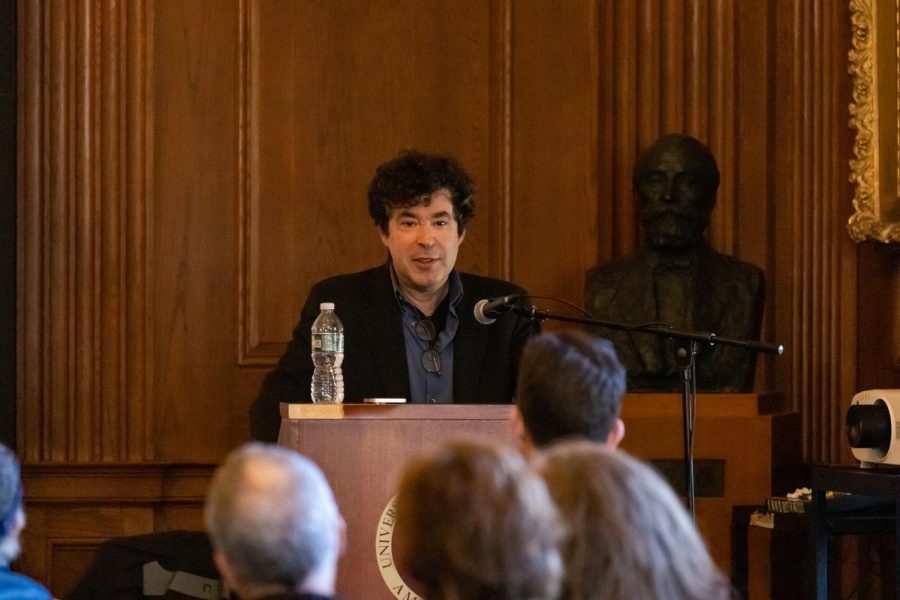On Thursday, March 23, renowned philosopher and professor at Yale University, Jason Stanley, delivered a lecture on the importance of a transparent and diverse curriculum in public education. Hosted by the Political Economy Research Institute in the Goodell Building, this forum focused on how public education has the ability to play a key role in shaping the future of the political world.
For Americans, the idea of a fascist regime eventually coming to fruition may seem like a far cry from reality. Stanley, whose work concentrates on propaganda, language and fascism, begs to challenge this belief. He expands on the commonly held ideas and examples of fascism to exemplify its threat to public education.
This is reflected in Stanley’s most popular book, “How Fascism Works: The Politics of Us and Them,” which was referenced in his lecture. On the topic of education, Stanley makes sure to emphasize its significance. He writes, “For the fascist, schools and universities are there to indoctrinate national or racial pride, conveying for example (where nationalism is racialized) the glorious achievements of the dominant race.” This concept was built upon in detail by Stanley in Thursday’s forum.
Tracing back to his Jewish heritage, Stanley commenced the forum by discussing his family’s experience with fascism and authoritarian regimes during World War II. His grandparents were pinnacles of their respective cultural, religious and intellectual communities in Berlin before the war. Despite their contributions to the cosmopolitan and progressive Berlin society, the growing prominence of the Nazi regime in Germany eventually rejected them from mainstream German society, in favor of propagating an “Aryan” national identity.
Given the atrocities committed during this period, this invites one to wonder how the German population at the time was willing to accept the radical rise of fascism. Stanley cites the manipulation of the German public education curriculum by the Nazis as a significant driver of the exponential rise of the support for fascist and discriminatory policies.
“We have to look at the narrative they want us to accept, and then the role that narrative will play in future politics,” Stanley stated, regarding the future of education.
To support this, he used harrowing examples, including the rhetoric posed in Nazi Germany that villainized liberalism and progressive thought in education as “dangerous Marxist ideologies.” Furthermore, Stanley also talked about the current education system in Russia, which teaches a distorted version of their history to encourage a national identity that will ultimately serve Russian efforts in the war against Ukraine. These examples, as disturbing as they may be, inspired audience members to think critically about the possible threat censorship imposes on the future of education and public thought.
Nancy MacLean, a professor of history and public policy at Duke University, echoed the gravity of how banning the teaching of certain concepts in schools is harmful.
“These efforts to prevent us from teaching honest history … I’m a historian, and these raw, blanket bans on what can be taught, how are we supposed to teach about slavery, the compromises that went into the Constitution that involved the slave states, how can we teach about the Civil War if we can’t teach about so-called divisive concepts?” MacLean said.
When asked about her opinion on if increased access to a strong and candid education could aid in dispelling fascist beliefs, MacLean replied, “I think education is incredibly important, which is why it’s a target.”
“Democracy is fragile. Incredibly fragile,” Stanley said when asked about how a democratic country like the United States could accidentally succumb to fascist policies. “And we must do everything we can to protect it.”
This shows that the power of education, according to Stanley, cannot be understated in its role for shaping the future.
Ava Pujado can be reached at [email protected].




















Joanne Morgan • Apr 6, 2023 at 6:47 pm
Wonderful article!
UMASS AMHERST ALUMNA’63